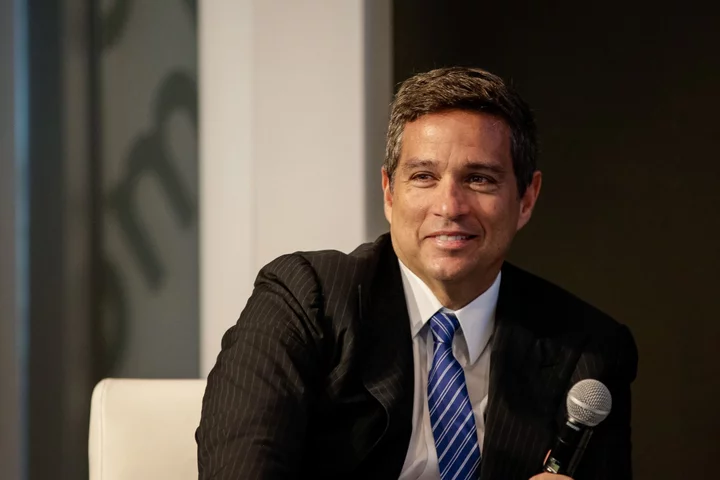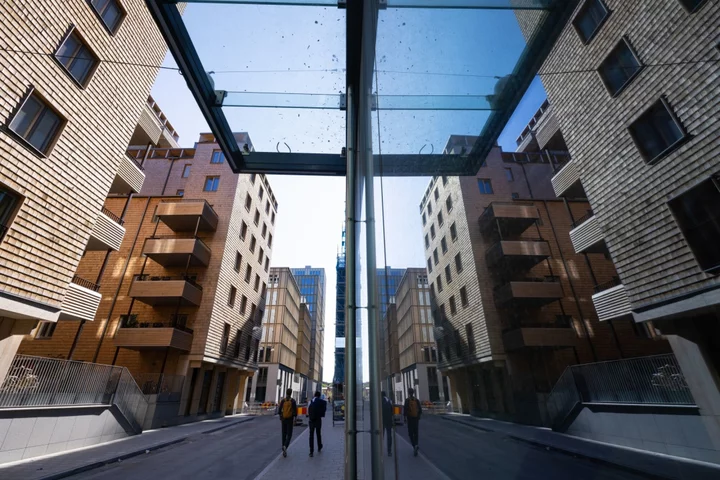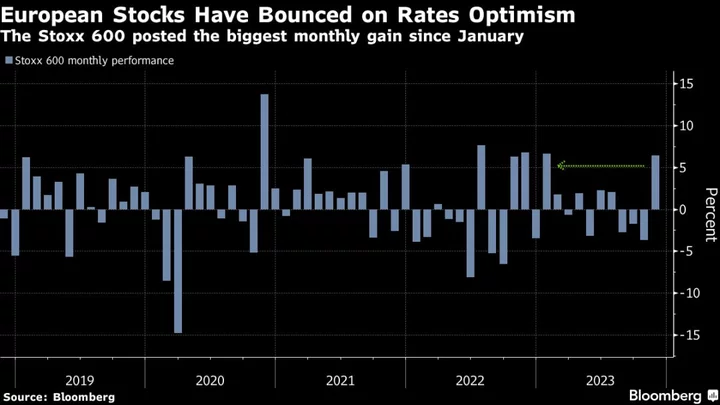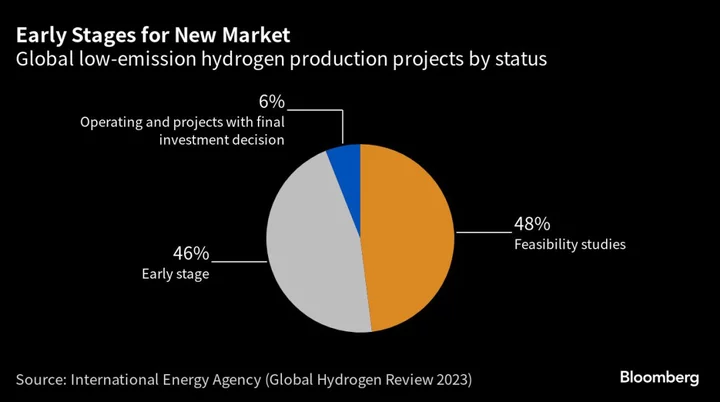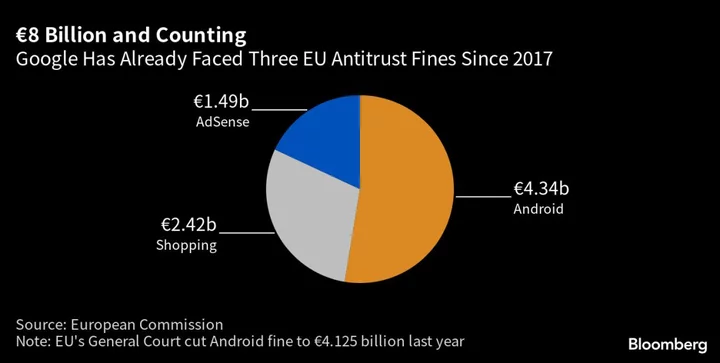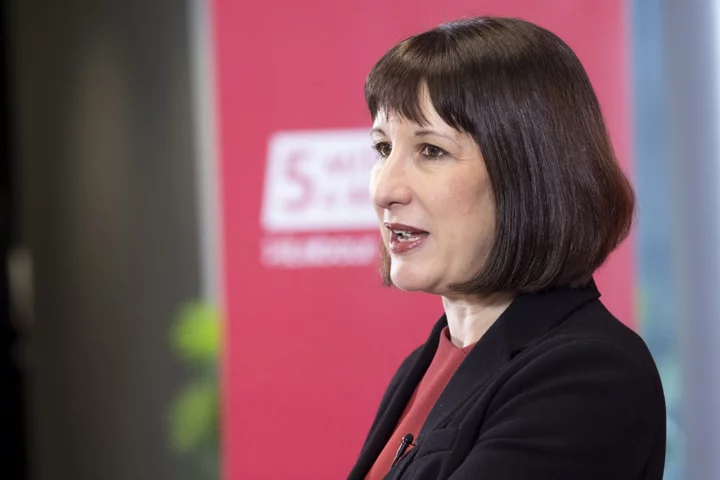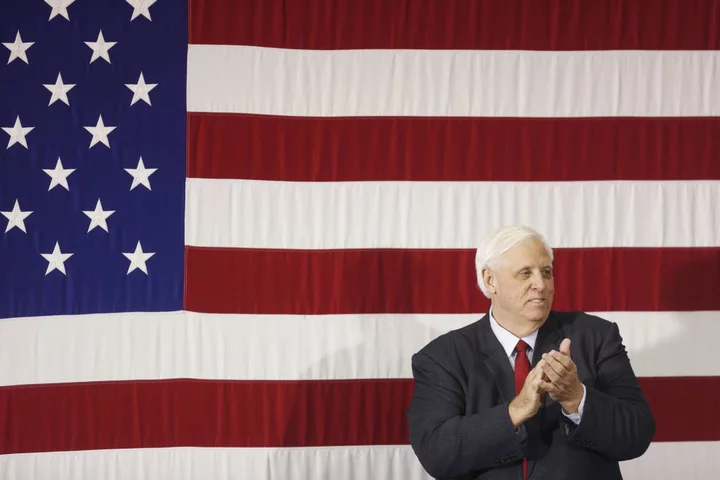Brazil’s central bank has room to continue lowering interest rates as inflation is well-behaved even if still a bit above the target, Governor Roberto Campos Neto said during an interview with Bloomberg Television.
Monetary policy remains so restrictive in Brazil “because as inflation goes lower, real rates go higher,” Campos Neto said Tuesday, referring to the difference between nominal rates and inflation. “So we have space to lower rates and still be in the restrictive camp.”
Swap rates fell across the curve on Wednesday, with contracts maturing in January 2027 dropping 11 basis points, as remarks from the central bank chief further encouraged bets on lower interest rates.
After leading Latin America into an aggressive tightening cycle in the wake of the pandemic, the bank led by Campos Neto was among the first to begin relaxing monetary policy. It has delivered three consecutive half-percentage point cuts since August, lowering the benchmark Selic rate to 12.25%, and envisions two more reductions of the same magnitude in the coming months.
Annual inflation is picking up again, but core measures that strip out energy and food prices have continued to ease and services cost increases are slowing. Most analysts still see consumer price gains within the monetary authority’s tolerance range by December, which would mark the first time in three years that Campos Neto’s board delivers on the goal.
Earlier this year, the government reaffirmed a 3% inflation target through 2026, a key factor for rate cuts. The decision to loosen monetary policy only gradually has helped shield the Brazilian real from turmoil seen in other emerging markets like Chile, where a weakening currency forced central bankers to adjust their pace of rate cuts.
“Brazil has improved in gaining credibility with the early cycle and taming inflation,” he said, adding that “very strong” capital inflows have led external accounts to perform “reasonably well.”
Brazil is in good shape compared to some advanced economies, which has kept the real “very well behaved,” Campos Neto said.
Read More: Brazil Central Bank Pledges Half-Point Cuts Only Through January
Still, central bankers have warned that interest rates will remain restrictive amid global uncertainty. Surging Treasury yields and persistent inflation in advanced economies have led Campos Neto to remain cautious about signaling future cuts.
Current half-point rate reductions are an “appropriate” pace for the next two meetings, Campos Neto said. Most traders bet the central bank will opt for smaller cuts after that, but the bank chief said numerous factors will determine its next steps.
“A lot of uncertainties will clear up between here and there,” he said.
Fiscal Credibility
After a record harvest boosted exports earlier this year, Latin America’s largest economy is now showing initial signs of a slowdown, with activity expected to cool over the second half of the year. That has generated concerns for President Luiz Inacio Lula da Silva, who took office in January pledging renewed economic prosperity.
A vigorous labor market and resilient retail sales, however, point to a higher structural growth rate, Campos Neto has previously said. He has also repeatedly emphasized that a change to Brazil’s current fiscal target could pose risks to the government’s credibility.
Lula recently sent markets reeling after questioning his government’s goal of eliminating Brazil’s primary budget deficit in 2024, a key element of its efforts to shore up public financing. But Finance Minister Fernando Haddad last week won an internal battle to maintain the goal in next year’s budget outline, buying time to continue his efforts to deliver.
“The government is showing it has the willingness to pursue the target, and we have been stressing that pursuing the target is what’s relevant,” Campos Neto said.
Read More: Lula to Keep Zero-Deficit Goal in Budget Plan, Minister Says
Lula hammered Campos Neto and the central bank with a barrage of public criticism over the first half of the year, at times saying that the bank’s governor had “no commitment to Brazil” and often pointing to high rates as an obstacle to economic growth. But the two met in September in what was described as a constructive step forward in their often-tumultuous relationship.
“Not only the president but the whole government now understand how technical the job has been,” Campos Neto said. “Price stability is very much correlated to consumer confidence, so if you don’t have price stability you have a lot of problems that in turn cause lower growth ahead.”
Campos Neto’s term as the bank’s president will end in December 2024, with Lula set to pick his replacement.
Arguments for a higher inflation target from the president and key members of his Workers’ Party have sparked analyst worries about the monetary authority’s tolerance for price increases going forward, and estimates for 2025 and 2026 have remained above goal for more than four months. To policymakers, that partially reflects a perception that the bank will become more lenient.
Argentina Woes
Campos Neto cited Argentina as a cautionary tale for the loss of central bank autonomy and repeated changes to fiscal and monetary goals.
Inflation rates above 140% and an economy on the verge of another recession fueled a Sunday presidential election victory for Javier Milei, a libertarian outsider who has promised to ditch the peso for the US dollar and close the country’s central bank.
“Argentina is a clear example in which the autonomy of the central bank lost steam,” he said. “There were a lot of changes in monetary targets and fiscal targets to an extent that they lost credibility, and that loss of credibility generates a spiral that caused much higher inflation.”
Read More: Milei Rides 143% Inflation Fury to Win Argentina Presidency
Brazil “can only hope” that the new government is able to foster a recovery, he said, given the links between the two nations’ economies.
“It is very important for Brazil to have Argentina working toward an equilibrium, because it’s a very important trading partner,” Campos Neto said. “We are hoping for the best.”
--With assistance from Davison Santana.
(Updates with market reaction in third paragraph.)

